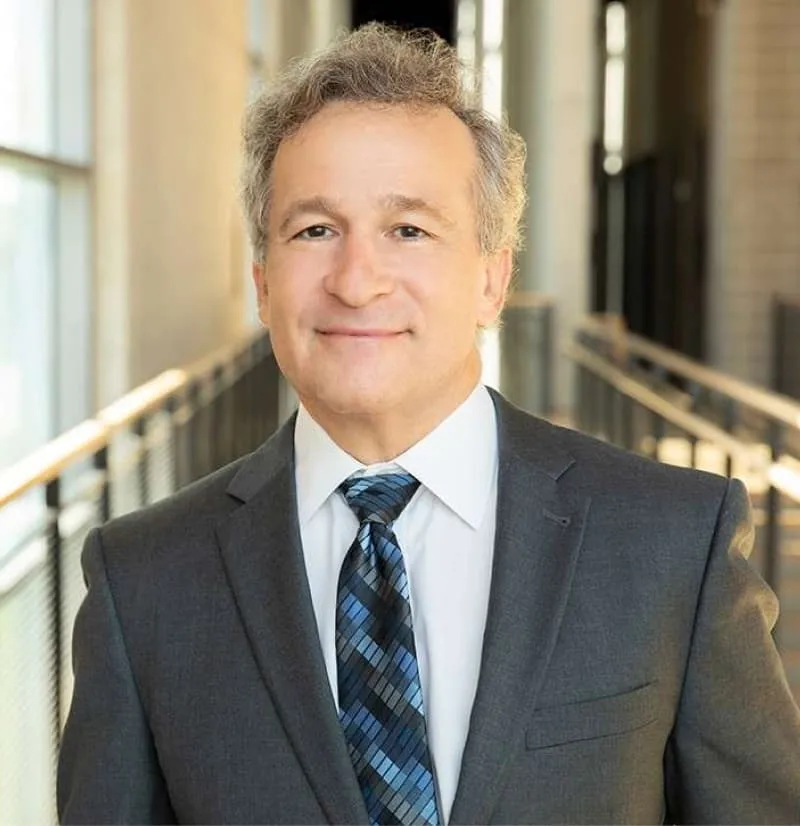Medical Justice provides consultations to doctors facing medico-legal obstacles. We have solutions for doctor-patient conflicts, unwarranted demands for refunds, online defamation (patient review mischief), meritless litigation, and a gazillion other issues. We also provide counsel specific to COVID-19. If you are navigating a medico-legal obstacle, visit our booking page to schedule a consultation – or use the tool shared below (fast and easy).
“Can Medical Justice solve my problem?” Click here to review recent consultations…
all. Here’s a sample of typical recent consultation discussions…
- Former employee stole patient list. Now a competitor…
- Patient suing doctor in small claims court…
- Just received board complaint…
- Allegations of sexual harassment by employee…
- Patient filed police complaint doctor inappropriately touched her…
- DEA showed up to my office…
- Patient “extorting” me. “Pay me or I’ll slam you online.”
- My carrier wants me to settle. My case is fully defensible…
- My patient is demanding an unwarranted refund…
- How do I safely terminate doctor-patient relationship?
- How to avoid reporting to Data Bank…
- I want my day in court. But don’t want to risk my nest egg…
- Hospital wants to fire me…
- Sham peer review inappropriately limiting privileges…
- Can I safely use stem cells in my practice?
- Patient’s results are not what was expected…
- Just received request for medical records from an attorney…
- Just received notice of intent to sue…
- Just received summons for meritless case…
- Safely responding to negative online reviews…
We challenge you to supply us with a medico-legal obstacle we haven’t seen before. Know you are in good hands. Schedule your consultation below – or click here to visit our booking page.
We continue with our series of general educational articles penned by one attorney, an MD, JD, giving you a view of the world through a malpractice plaintiff attorney’s eyes. This attorney is a seasoned veteran. The series includes a number of pearls on how to stay out of harm’s way. While I do not necessarily agree with 100% of the details of every article, I think the messages are salient, on target, and fully relevant. Please give us your feedback – and let us know if you find the series helpful. Finally, these articles are not intended as specific legal advice. For that, please consult with attorney licensed to practice in your state.
When the defense in the Derek Chauvin trial was permitted to introduce a video of George Floyd being arrested in 2019 (a year before he lost his life during a subsequent arrest) many doctors were confused. Physicians who have experienced the angst of being sued are generally told by their defense counsel that a basic rule in a medical malpractice action is what you did with another patient cannot serve as evidence in a current case.
They are actually correct about that as a threshold matter. As a general rule, cases are tried on only their own facts.
This is particularly suited to medical malpractice actions because the issue is whether the defendant adhered to the standard of care. The standard of care may vary with particular circumstances. Each patient and each case is different. It is therefore proper to limit the evidence presented to the actual events of the case.
Preventing a plaintiff from introducing unrelated cases more often actually serves as a shield against a physician defendant. The plaintiff is being prevented from muddying the doctor with irrelevant information in front of the jury. Such material is considered “more prejudicial than probative”.
On the other hand, that same approach prevents a doctor whose past care was excellent from showing examples of that excellent past care. If there was a parallel aphorism it would be such material is considered “more puffery than probative”.
There actually are limited roles for evidence of prior conduct in a medical malpractice case, though.
The first is when that prior conduct establishes a pattern with the current case.
The use of the video in the Chauvin case referenced above goes to that. The video was of a different arrest by different officers but there was commonality in Floyd’s conduct, including swallowing pills to prevent their detection and panicking and calling for his mother. The video was cropped to just the points of similarity to make the case for a pattern.
In the medical malpractice setting the issue would be whether the cases were so similar that it would be fair to consider the physician defendant’s actions in one case for the other.
Cutting the ureter and then failing to repair it in two prior surgeries could fairly show a pattern if the claimed current harm was cutting the ureter and failing to repair it. However, cutting the common bile duct and failing to repair it in two prior surgeries would not be considered a pattern in that same ureter case. Even though the cases have the commonalities of cutting a structure and not repairing it, the structures are different and their surrounding anatomy is as well.
Conduct from outside the case being litigated must also be substantially similar. This prevents showing the jury a film of prior acts that was edited specifically for the trial.
In a case that involved laceration of the aorta during a valve replacement, the trial court allowed the defense to show the jury a video of the defendant doctor doing the same procedure flawlessly on a different patient six years later. The defense claimed that the video was presented solely to show the jury how the procedure is done. There was a defense verdict and the plaintiff appealed. The appellate Court reversed and ruled that using the video was so improper that a new trial was warranted. The Court specifically noted not just that the circumstances of the cases were different but that the video had been specifically edited for the litigation to heighten its positive aspects.
Another type of evidence outside the case being litigated that may be admitted to refute a malpractice claim is habit/custom and practice.
This comes up when the defendant’s doctor cannot specifically remember the events of the case but wants to testify that he must have done a necessary thing because he customarily always does it.
An example would be a plaintiff suing for a skin infection after venipuncture. The plaintiff is claiming that the procedure was done in an unhygienic way and the doctor cannot recall the individual case. The doctor would want to testify that he always wears gloves and always cleanses the area with alcohol before inserting the needle – so he must have done so in this case as well.
Habit/custom and practice evidence may be permitted subject to two important limitations.
The first requirement is that the conduct must really be a habit or set custom and practice. As a court in New York wrote, “Evidence of habit or regular usage…involves more than…conduct however frequent yet likely to vary from time to time depending upon the surrounding circumstances; it involves a repetitive pattern of conduct and therefore predictable and predictive conduct.”
The second requirement is that it must be conduct that the defendant alone controlled. If independent instrumentalities or other participants are involved then the defendant cannot cite it.
Three dental malpractice cases demonstrate how these principles play out.
In a case alleging lack of informed consent, a dentist was allowed to cite his 19-year practice of always advising patients that permanent numbness could follow a wisdom tooth extraction because such a recitation was seen as basically a repeated business action and one solely under his control.
However, in another case, a maxillofacial surgeon was not allowed to introduce evidence of how he routinely did extractions with his assistant because the procedures were performed on unique patients and another practitioner was involved.
The point is not that one act is ministerial and one is therapeutic. It is that one habit claim was about conduct that was repetitive and solo while the other was about conduct that varied and not solo. In another case, therefore, the routine administration of anesthesia before an extraction was considered “mundane” and the sort of conduct that “habit” could be ascribed even though it was an invasive action.
Of course, a doctor can certainly testify on direct examination that they are very experienced in a type of care, with good results. What they cannot do is claim that as evidence that their care was equally good in the case they are being sued about.
In summary: The general rule is that evidence from outside cases may not come into a medical malpractice case but limited exceptions are made when a pattern is established or when the claim is regarding habit/custom and practice.
What do you think? Let us know in the comments below.
Medical Justice provides consultations to doctors facing medico-legal obstacles. We have solutions for doctor-patient conflicts, unwarranted demands for refunds, online defamation (patient review mischief), meritless litigation, and a gazillion other issues. We also provide counsel specific to COVID-19. If you are navigating a medico-legal obstacle, visit our booking page to schedule a consultation – or use the tool shared below (fast and easy).
“Can Medical Justice solve my problem?” Click here to review recent consultations…
all. Here’s a sample of typical recent consultation discussions…
- Former employee stole patient list. Now a competitor…
- Patient suing doctor in small claims court…
- Just received board complaint…
- Allegations of sexual harassment by employee…
- Patient filed police complaint doctor inappropriately touched her…
- DEA showed up to my office…
- Patient “extorting” me. “Pay me or I’ll slam you online.”
- My carrier wants me to settle. My case is fully defensible…
- My patient is demanding an unwarranted refund…
- How do I safely terminate doctor-patient relationship?
- How to avoid reporting to Data Bank…
- I want my day in court. But don’t want to risk my nest egg…
- Hospital wants to fire me…
- Sham peer review inappropriately limiting privileges…
- Can I safely use stem cells in my practice?
- Patient’s results are not what was expected…
- Just received request for medical records from an attorney…
- Just received notice of intent to sue…
- Just received summons for meritless case…
- Safely responding to negative online reviews…
We challenge you to supply us with a medico-legal obstacle we haven’t seen before. Know you are in good hands. Schedule your consultation below – or click here to visit our booking page.
Learn how Medical Justice can protect you from medico-legal mayhem…
Take Advantage of Our Review Monitoring Service
With eMerit, we help you automate review collection and posting to improve your online reputation.
Consult with a Medico-Legal Expert
Medical Justice Founder and CEO, Jeff Segal, MD, JD and our expert team provide consultations to doctors in need of guidance.
Meet the Experts Driving Medical Justice
Our Executive Team walks with our member doctors until their medico-legal obstacles are resolved.
Jeffrey Segal, MD, JD
Chief Executive Officer and Founder
Dr. Jeffrey Segal, Chief Executive Officer and Founder of Medical Justice, is a board-certified neurosurgeon. Dr. Segal is a Fellow of the American College of Surgeons; the American College of Legal Medicine; and the American Association of Neurological Surgeons. He is also a member of the North American Spine Society. In the process of conceiving, funding, developing, and growing Medical Justice, Dr. Segal has established himself as one of the country’s leading authorities on medical malpractice issues, counterclaims, and internet-based assaults on reputation.
Dr. Segal was a practicing neurosurgeon for approximately ten years, during which time he also played an active role as a participant on various state-sanctioned medical review panels designed to decrease the incidence of meritless medical malpractice cases.
Dr. Segal holds a M.D. from Baylor College of Medicine, where he also completed a neurosurgical residency. Dr. Segal served as a Spinal Surgery Fellow at The University of South Florida Medical School. He is a member of Phi Beta Kappa as well as the AOA Medical Honor Society. Dr. Segal received his B.A. from the University of Texas and graduated with a J.D. from Concord Law School with highest honors.
In 2000, he co-founded and served as CEO of DarPharma, Inc, a biotechnology company in Chapel Hill, NC, focused on the discovery and development of first-of-class pharmaceuticals for neuropsychiatric disorders.
Dr. Segal is also a partner at Byrd Adatto, a national business and health care law firm. Byrd Adatto was selected as a Best Law Firm in the 2021 edition of the “Best Law Firms” list by U.S. News – Best Lawyers. With decades of combined experience in serving doctors, dentists, and other providers, Byrd Adatto has a national pedigree to address most legal issues that arise in the business and practice of medicine.





Reading through the rules for malpractice cases and how they differ from other cases, and all of the exemptions and special circumstances, all lead to one conclusion. That conclusion is that the law is not favorable to physicians, and rules are seemingly written to favor the plaintiff in the case when it comes to physicians. If the whole subject ever came down to judicial review, of equality under law, and just fairness and common sense, most of these rules covering malpractice cases would be thrown out. When the law is so convoluted, that an average citizen cannot understand it, let alone an educated physician, then the law is worthless and without merit. These laws are interpreted to favor the plaintiffs bar with very few protections built in to protect physicians.
In the example cited about venipuncture, physicians are trained to wear gloves. They always do so. The only exception might be some emergency case, but even then the extra few seconds to don a pair of gloves should not matter. Do physicians routinely document in the chart about the start of an IV and that a sterile prep and drape was done, and that gloves and mask were used? They did not do that in the past in either the floor, ICU or day surgery areas. They typically would in the OR. Standard procedure is standard procedure and physicians typically would document an exception to normal procedure. But in these arcane rules routine practice would not seem to matter because circumstances are different. But is the start of an IV different, really? Again, this just seems like the law being twisted for the purposes of the plaintiff’s bar.